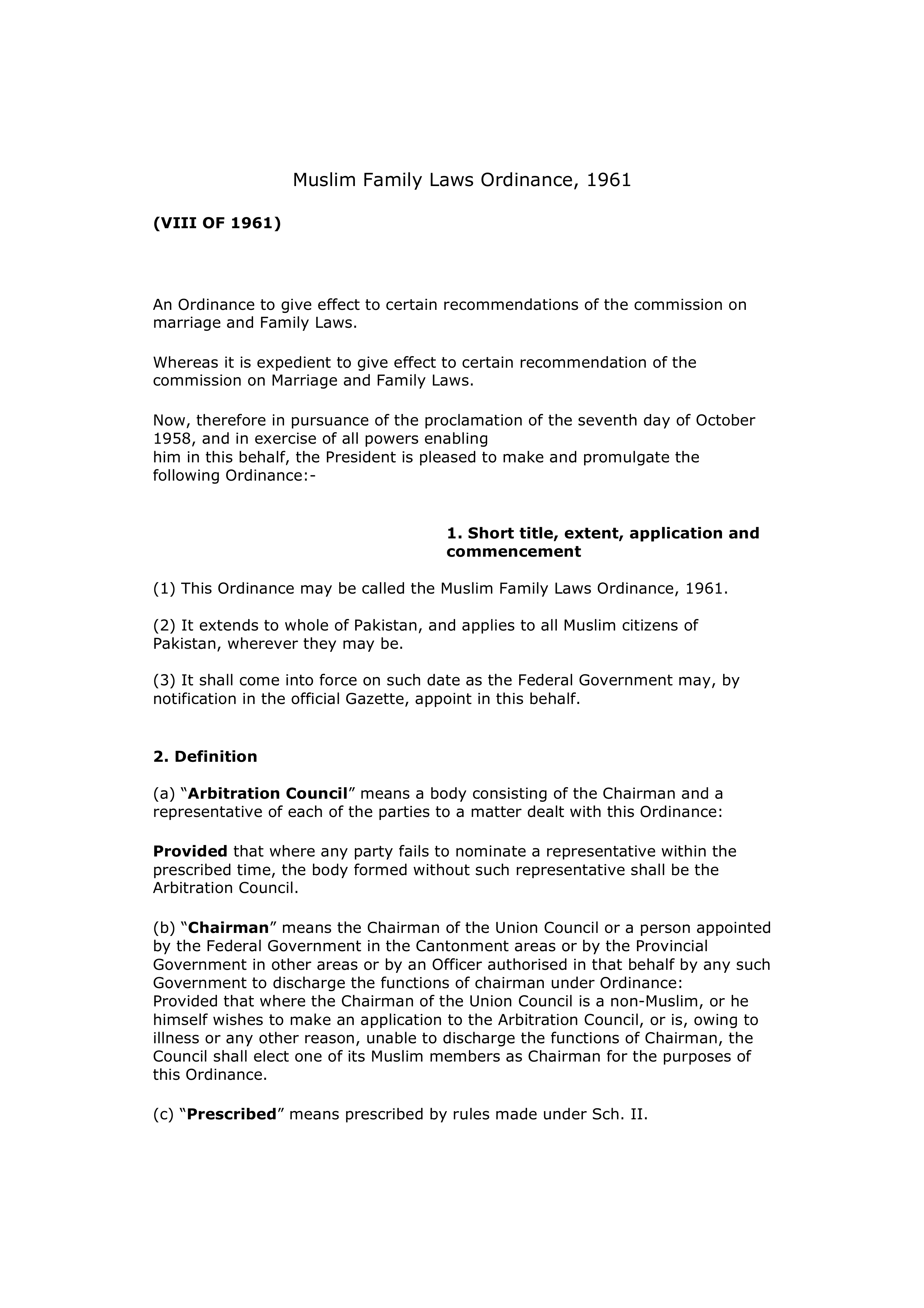Family Law
Family law is a branch of law that specialises in problems involving family disputes, including marriage, adoption, divorce, and child custody, among others. In family court hearings or other relevant agreements, family law advocates can represent clients.
Some family law specialists even focus on issues unrelated to divorce, such as emancipation, paternity, and adoption. The topic of family touches on so many facets of life. As a result, lawyers in the sector assist clients with a wide range of delicate concerns that many people wouldn’t presume fall under the purview of family law.
List of Bare Acts
- The Guardians and Wards Act, 1890
- Muslim Family Laws Ordinance, 1961
- The Dissolution of Muslim Marriages Act, 1939
- West Pakistan Family Court Rules, 1965
- Dowry and Bridal Gifts (restriction) Act, 1976
- West Pakistan Family Court Act, 1964
Family Law in Pakistan
Background
Let us begin with a question now. Do we have a family? The average answer to this question is positive. It is reasonable that one having a family must know about laws relating to the family. The family may have liabilities and duties governed by specific laws. Many families have disputes arising from very minute conflicts between them, and there may also be a probability of grave conflicts between the family members. Those conflicts must be resolved logically instead of racking fights without any legal reasoning and law. For such purposes, we have codified and uncodified laws to trade with confrontations. With changing times, Muslim Family Laws in Pakistan have been perceived through different periods of time and political influences on legislation. With the inception of Muslim Jurisprudence in 712 AD, the legal structure in the Indian subcontinent before British rule was based on Shariah, with even the Mughal Emperors taking the role of the judiciary. Muslim Jurisprudence was used to administer the justice system during the British regime.
Revisiting Muslim Family Laws In the 21st Century
Muslim Family Laws Ordinance (MFLO) 1961 is the footing of family law in Pakistan. Family law is that branch of the legal system that deals with family-related cases, including marriage, divorce, child custody, adoption, dowry, and estate. The idea behind the enactment of MFLO is to codify Muslim personal law in Pakistan and create conformity and uniformity in its application. The Muslim Family Law Ordinance 1961 channeled family affairs in accordance with the injunctions of the Quran and the Holy guidance of the Prophet (PBUH). For instance, the marriage law in Pakistan states that it should be based on the Islamic concept of a contract between males and females. Both enter a contract whereby they merrily agree to live together as husband and wife. The consent of both couples should be free consent, which means there is no notion of undue influence and pressure upon them to marry. This contract is mainly called Nikkah, which either party can dissolve through Talaq or Khula in case of dispute arise.
Classifying the Muslim Family Laws
The Muslim Family Laws in Pakistan may be divided into 15 categories as follows: –
- West Pakistan Rules Under the Muslim Family Laws Ordinance, 1961
- The Special Marriage Act, 1872
- The Divorce Act, 1869
- The Birth, Death, and Marriage Registration Act, 1886
- Dowry and Bridal Gifts (Restriction) Rules, 1976
- West Pakistan Family Court Rules, 1965
- Child Marriage Restraint Act, 1929
- The Foreign Marriage Act, 1903
- The Marriages Validation Act. 1892
- The Guardians and Wards Act, 1890
- The Dissolution of Muslim Marriages Act, 1939
The Muslim Laws Ordinance, 1961
Dowry and Bridal Gifts (restriction) Act, 1976
West Pakistan Family Court Act, 1964
Importance of Knowing Muslim Family Laws
A citizen must know the legal structure of the country. Family laws are much more elementary for an individual to protect his family’s rights and responsibilities within a family unit. Family laws establish guidelines for nailing disputes and ensuring fair treatment in matters like child custody, the law of inheritance, and marriage dissolution. It also assures a society’s order if the families live in harmony. The awareness of laws concerning family issues varies among the population of rural and urban areas. Individuals residing in urban areas usually have access to information, educational opportunities, and legal services, while rural areas need more.
Knowing family laws made people adept at understanding their standing in a community. Their legal awareness licenses them to make informed decisions and bear up for their rights in any legal dispute. It is the knowledge that navigates the legal system effectively. An informed citizen can identify the potential threats or mistreatment. They can sense unlawful practices and seek legal shields. Moreover, the knowledge of Muslim family laws would maintain congruence among families. Awareness of the laws can also promote dialogue and understanding, which contributes to the overall maintenance of the family unit.


